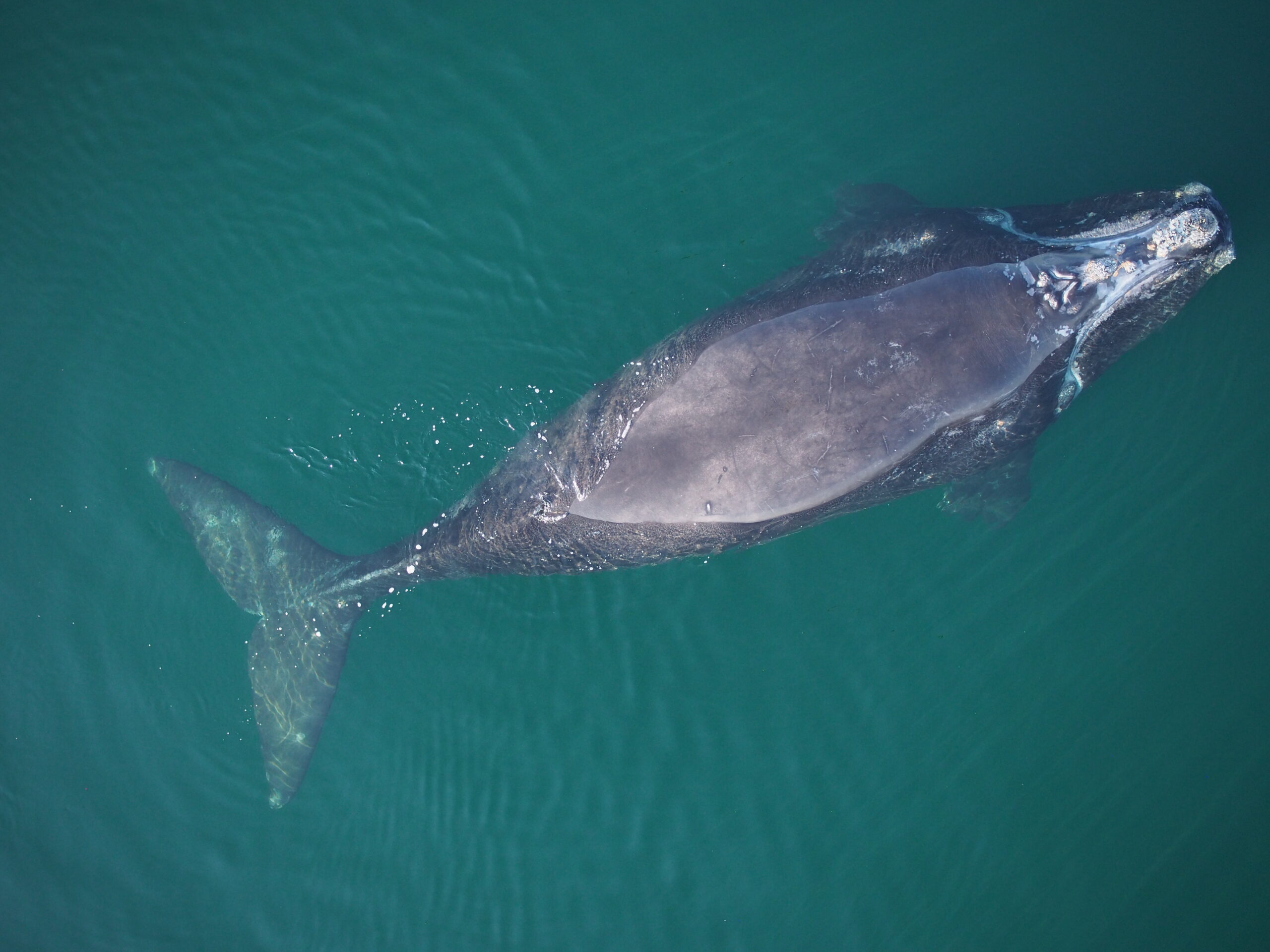The Aquarium will be closed to the public on Wednesday, April 2, for an internal staff event. Regular operating hours will resume on April 3.

BOSTON, MASS. (Feb. 2, 2024) – Scientists at the New England Aquarium have identified a deceased North Atlantic right whale that washed ashore on Martha’s Vineyard as a 3-year-old female.
NOAA Fisheries was notified of the deceased juvenile, which the Aquarium identified as unnamed whale Catalog #5120 using photographic data from the North Atlantic Right Whale Catalog, near Joseph Sylvia State Beach on Martha’s Vineyard on Jan. 28. The Wampanoag Tribe of Gay Head (Aquinnah) and the International Fund for Animal Welfare secured the whale, which is undergoing a necropsy this week to determine the cause of death. State law enforcement officials also collected rope that was entangled around and embedded in the whale’s tail and turned it over to NOAA’s Office of Law Enforcement.
“This case highlights the ongoing threat right whales and other whale species have been facing from fishing gear entanglements for decades. Prevention of these entanglements needs to be a priority that our society should support. Technological advances that would allow fishing without an endline in the water column—on-demand fishing gear—have come a long way, and implementation of on-demand gear broadly into fisheries is a critical step needed to save this species and to allow fishing to continue,” said Amy Knowlton, a senior scientist in the Anderson Cabot Center for Ocean Life at the New England Aquarium.
Researchers first observed Catalog #5120, the 2021 calf of “Squilla” (Catalog #3720), entangled in fishing gear in August 2022 in the Gulf of St. Lawrence, Canada. Multiple attempts were made to disentangle the whale in January and February of 2023 off Cape Cod. She was resighted still entangled in June 2023 in the Gulf of St. Lawrence, with her overall body condition declining as the rope constricted around her tail had become more deeply embedded.
Catalog #5120’s family tree is only partially known. Her grandmother, “Mantis” (Catalog #1620), has had at least seven calves, but only three of them, all females, were able to be identified and catalogued. Squilla is the only one to have calved so far. Her known family members have sustained at least seven different entanglements, with Catalog #5120’s being the eighth.
“The loss of this juvenile female is not only sad, but also represents the loss of tremendous potential for this species. We know of one female right whale in this population who has at least 30 descendants—calves, grandcalves, and great grandcalves. A small consolation is that #5120’s grandmother, mother and two aunts are still alive, so her female lineage will survive,” said Philip Hamilton, a senior scientist in the Aquarium’s Anderson Cabot Center.
North Atlantic right whales, a critically endangered species, face increasing threats from fishing gear entanglements and other stressors including vessel strikes, which research has shown affect survival and are impacting females’ ability to produce calves. Fewer than 360 North Atlantic right whales remain in the population, including an estimated 70 breeding females.
So far during the 2023-2024 calving season, 17 North Atlantic right whale mother-calf pairs have been documented. While every right whale birth is a reason to celebrate, many more healthy calves are needed to counter the losses from human activities and sustain this species. Two of the 16, the calves of unnamed whale Catalog #3780 and “Half Note” (Catalog #1301), have disappeared and are likely dead. A third, born to “Juno” (Catalog #1612), has deep propeller cuts on its head, and its survival is questionable.
The North Atlantic right whales’ critically endangered population has been in decline since 2011, with New England Aquarium research identifying entanglements in fixed fishing gear as the primary cause. About 86 percent of right whales have been entangled at least once, some as many as nine times. Over the last 40 years, Aquarium scientists have worked with fishermen, industry partners, and government agencies to develop ropeless or “on-demand” gear and weak ropes, solutions that would enable fishing to continue and allow the right whale population to recover.
MEDIA CONTACT: Pam Bechtold Snyder, psnyder@neaq.org; 617-686-5068
